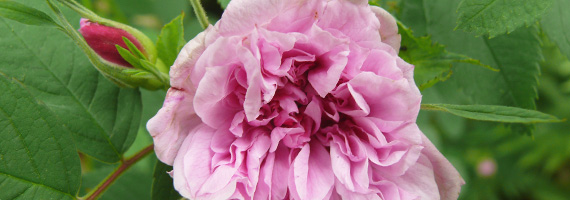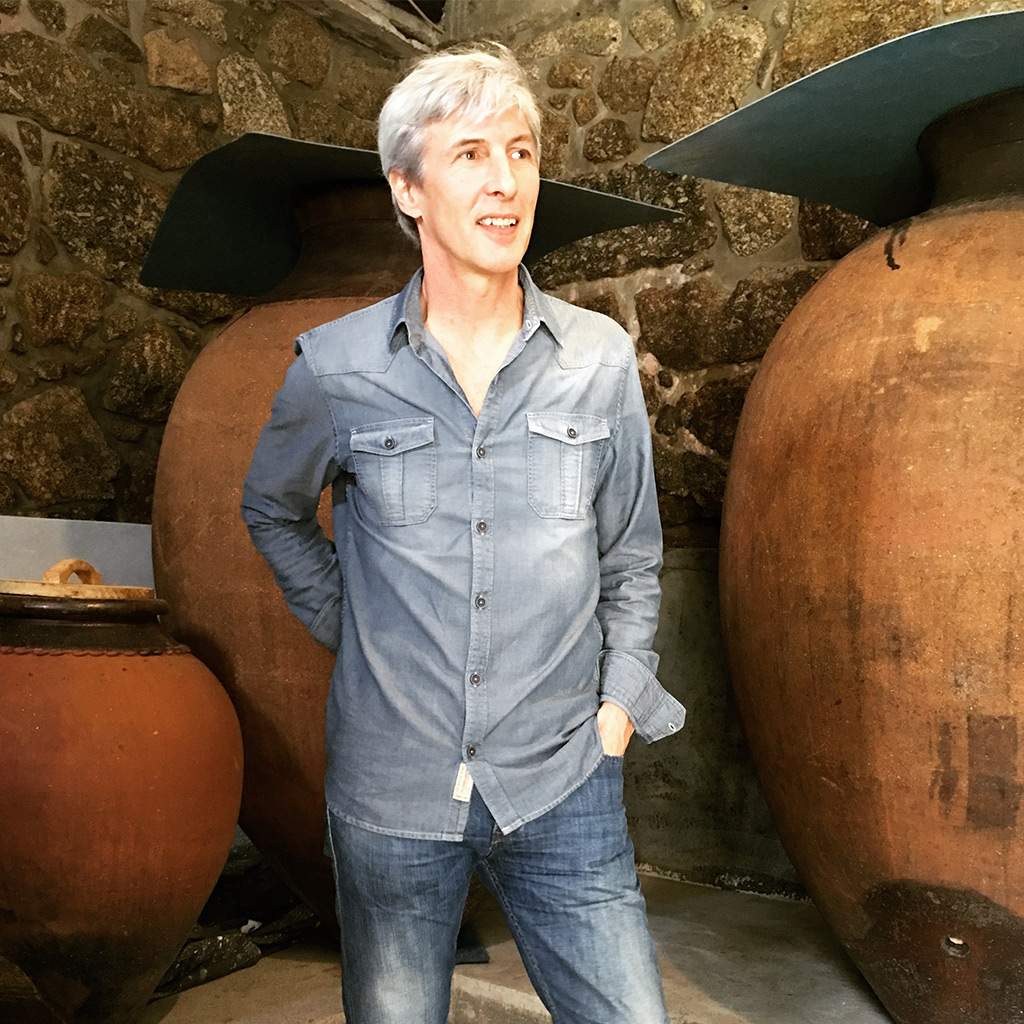My birthday’s on the winter solstice, and it fell on a Wednesday this year. It was a normal, if very dark, work day. I didn’t want to cook my own birthday dinner, but our restaurant options are limited. I’d been dithering. By 3:30 pm, the sun was setting and it had begun to sleet. It was time to decide.
I emailed Steve at work. Let’s try that place on Main Street—the bistro side, not fine dining. No reservations needed, not too far to drive, no fuss. I’ll meet you there at 6:30.
The last time I’d dined there was over a decade ago, on a departing date with my ex-husband. Unsurprisingly, I hadn’t been back for dinner. Also unsurprisingly, the restaurant has new owners (two times over). Steve and I had recently attended a distributor’s wine tasting there. The snacks were good.
I arrived early. The bistro was bustling, fine dining not so much. I was seated and presented a menu and wine list. I opened the wine list first.
Birthday wine, birthday wine, let’s see. Sparkling? Decent Rieslings. Lots of Pinots, from all over creation. Not in the mood for Cabernet, because I’m not in the mood for what goes with Cabernet. Italy, maybe?
It was a small but solid list, with reasonable international coverage, good by the glass options, and many interesting labels. They’d evidently put some thought into the list rather than simply handing it over to a distributor. But it was arranged by variety, which makes for strange bedfellows and engenders odd hybrid categories, like, as here, “Riesling and Alsace” and “Unusual and Esoteric.” All the red vintages seemed wildly too young.
Steve arrived. Sorry I’m late.
That’s okay, I’ve been perusing the wine list. A few have caught my eye. Let’s see which ones catch yours.
Your birthday, he said. You choose.
The waiter arrived, a young man with pleasant eyes. I noted the smooth black sheen of his hair and the pale scar stitching the full length of his right cheek. Can I get you a beverage?
Yes, please, I said. We’ll start with the 2010 Tegernseerhof Grüner Veltliner Federspiel, though we’ll be having a red with dinner. What can you tell me about this one? I asked, pointing to the evidently Unusual and Esoteric 2009 Hilberg-Pasquero Vareij “Vino Rosso” from Piemonte.
I don’t know much about it, he said. I haven’t tried it, but lots of people order it. We sell a ton. Let me send over the man who knows about wine. Meanwhile, I’ll get your Grüner, he said, and was gone.
The man who knows about wine appeared. He was older than our waiter, most likely the staff captain. You’ve a very interesting wine list, I said.
Thanks, he said. We have many guests who know a lot about wine.
Great news, I said. So, the Vareij. What is this wine?
It’s very popular, he said.
Uh, oh, I thought reflexively.
It’s biodynamic, he continued, which means that they grow the grapes according to the cycles of the moon, the stars. They use composts in the vineyard.
We nodded encouragingly, waiting to learn something.
It’s grown outside of the DOCG, he said, which is why it’s a “vino rosso.” He paused. I’m not sure what he expected to happen next.
So, I said, groping. It’s from Piemonte. Is it a Nebbiolo, or primarily so? Or is it a field blend of some kind?
Yes, I think it has some nebbiolo, he replied. It has a little bit of that anise flavor. He pronounced it “ah-NEECE.”
We’ll try it, I told him. Sounds fun, and probably good with the duck confit.
Definitely, he said. Shall I bring it so it can get some air?
Yes, I said. If it’s a Nebbiolo, it’ll likely need some.
The younger waiter returned with our Grüner. Did you order the Hilberg? He asked.
Yes, Steve said. And when it comes you should have a taste, because you sell so much of it, and it’s new to you.
Oh, no, I couldn’t have any of your wine, he said, shaking his head, evidently embarrassed. He set two small, restaurant-grade tasting glasses before us. I looked at Steve, and then glanced obliquely at the bar, over which much better glasses were hanging, the ones we’d used during the wine tasting last fall. Steve nodded almost imperceptibly.
I’m sorry to trouble you, I said to the waiter, but would it be possible to bring over two Bordeaux glasses? We like a bigger glass, so we can swirl the wine.
He seemed a little flustered by this, but gamely whisked away the small glasses and returned promptly, proudly setting two Burgundy glasses before us.
Oh! Thank you so much, I said. That’s very kind. But—these are Burgundy glasses, and they’re probably not quite right for this wine. I don’t mean to be high-maintenance, but do you have a couple of Bordeaux glasses available?
I was hoping the bartender could help him out, hence my repeated “Bordeaux.” Now he looked genuinely flummoxed.
Um, the glasses that look like this, I said, making a shape with my hands.
The server pulled the stemware away somewhat hesitantly.
Now I was the one who was embarrassed. Why am I pushing this? I thought to myself. I’ve waited tables. I’ve walked way more than a mile in this young man’s shoes, back and forth between kitchens and dining rooms in restaurants up and down this valley. I know what it’s like to want to please a guest but to have no clue what she really wants.
To my great relief he returned in a few minutes with the correct glasses. He looked relieved, too.
He twisted the screwcap off the Grüner, then set the cap on the table. I was grateful he didn’t call attention to it, so that, given the foregoing, we didn’t have to engage in the obligatory no-we-don’t-think-any-less-of-a-wine-under-screwcap colloquy. He tentatively waved the bottle over each of our glasses, then angled it toward Steve. Would you like to taste the wine? he offered.
Sure, Steve said smiling, glancing up at me.
I smiled at them both, a genuine smile. The waiter poured the wine, then took our order. I think he was glad to be gone.
Steve and I clinked glasses. I made sure both servers were out of earshot. Uh, can you say server training? I intoned.
Seriously, Steve said.
I mean, these guys have created a thoughtful and food-friendly wine list, they have a clientele who loves wine—
And knows a lot about it, Steve added.
—and orders some of these wines by the gallon. One of which they’ve ghettoized under “esoteric,” by the way. Why don’t they have it by the glass if it’s so popular? And they’ve got exceptionally pleasant, helpful staff. These guys are great! But they know bupkis about the wines. It’s crazy. It’s also incredibly unfair.
To the customers? Steve asked.
To the staff, I countered. Every server should know about the wines, not just the captain. And every server can, with a small list like this. They should know what they taste like, how to describe them, how to pair them, how to serve them. Server training doesn’t have to be hard, or take a lot of time. They just need to taste the wines, and to talk about what they’re tasting—preferably with the kitchen staff.
We fell quiet as our server returned with our first course. We clinked again and ate gratefully, setting aside for now our benign philippic, our naive quixotic itch to fix the wine world.
Presently the captain returned with the Hilberg and two more Bordeaux glasses. He pulled the cork and set it at my place. I looked at it and nodded. He poured me a taste.
I lifted the glass and swirled, then sniffed. It was like tumbling headfirst into a Rosa rugosa in full bloom on a hot day in July, bees scattering.
Wow, I said. Roses-exclamation-point. This is Nebbiolo? I set down my glass, and nodded again to signal him to pour the wine for us both, but he attended me.
I took a sip. It was wildly floral, with low acidity, very little tannin, and perceptible residual sugar. It didn’t just smell like roses, it tasted like roses, too, with supple berry fruits and soft spring petals. The rose note was unremitting, even a bit cloying, like an old woman’s perfume, like a linen cupboard closed up since May, like soap. The wine wasn’t flawed, just strange. Wonderfully, puzzlingly, curiously strange.
Yes, I nodded again, smiling him on. He poured it for us both, then bowed away.
Steve took a taste.
Maybe some of this will blow off, I said. And what the heck is it, anyway? This ain’t no Nebbiolo. Maybe it has a little dolcetto? It tastes like strawberries in rose syrup.
We set it aside as we finished our primi. The main course arrived. We’d both ordered the duck confit. This was excellent: beautifully textured, with meltingly tender meat that pulled cleanly off the bone under a crisped fat skin. The chef had served it atop boiled potatoes and frisée salad with a Dijon vinaigrette, which posed a tart, cleansing counterpoint to the richness of the meat.
We sipped the red. It wasn’t a great pairing. Duck on a bed of rose petals. Duck in a garden. Duck dressed for Easter Sunday. Duck à la rose.
But I was haunted. What was this wine? I have a reasonably well developed taste memory, and can readily call to mind the distinct flavors of many foods and the scents of many herbs and flowers. I also have a good taste imagination. Both help my cooking, because they let me design a dish in my head and pre-flight it against my palate to see how the flavors might work together. But my experience with wine is more limited, and so my taste memory of wines is less astute. And my blind tasting skills are mostly limited to identifying the noble grapes, and then only when they’re vinified with great typicity—not over-ripe or over-extracted, not aged in too much new oak, not made in a New World style if it’s an Old World wine. The red in my glass was driving me crazy.
The older server came back. How is everything? he asked.
The duck’s great, Steve replied, and the wine’s really interesting. By the way, our server said he’d never tried it, and since you sell so much of it, we’d like to offer him a taste. Would that be okay?
The man nodded and swept away wordlessly. He soon returned with one of the smaller tasting glasses, poured about two ounces, and spirited it off to the bar.
I took another sip, my brain reaching to pull something off the shelf. Maybe it’s Ruchè? I ventured aloud. I’d tasted a Ruchè only once, and that was made from fruit grown in California, not Italy. But I’d recalled reading something at the time about rose petals.
Now I had to know. I reached for my iPhone. This is rude in a restaurant, but no more so than scant server training. I peered into my palm.
It’s not a Ruchè, I announced, only slightly crestfallen. It’s 60% brachetto and 40% barbera. Brachetto’s usually made into a sweet, fizzy red, Brachetto d’Acqui. It’s pretty rare, and the grape’s even more rarely made into a table wine like this. I suppose with more than 2,000 grape varieties in Italy, there’s no shame in not being able to nail the component parts of Piemontese “vino rosso” blind. And by the way he’s correct—it’s not a DOCG.
It probably can’t even be an IGT, Steve observed.
Right, I added, because it’s not exactly, you know—tipica.
Thanks for the taste, our server said, returning.
What’d you think? I asked.
It’s really big, kind of earthy. Tart. It has a lot of tannin, I think.
I nodded up at him encouragingly, thinking—really?
By the end of our meal we’d drunk a little less than half of each bottle, so we capped them and ported them home through the snow, along with the last bites of my duck confit.
The next day, we finished off the white as I made flatbreads with smoked tomatoes and basil and fresh mozzarella, plus the remaining confit scattered on top. We poured the red as we sat down to the meal. Time had not muted its floral charms, but weirdly, incredibly, surprisingly, it was an absolutely perfect pairing with the smoky, tomatoey, meaty flatbread. Maybe because the two were equal in intensity, hence equal partners on the palate. Or maybe because they shared a gustatory intention, a history, a geography, an origin—if distant.
One should always try something new on one’s birthday, I thought aloud.





Impeccable prose can make even a dull wine seem fascinating, but you just had to go and pick an interesting one to start with. I’d love to try that Vino Rosso, especially because I’m making an effort to acquaint myself with florality now, but also because I’m a sucker for neglected grapes, and I don’t think I’ve ever tried Brachetto.
(I have, however, had Ruchè! Also only one time, but it was from Piedmont.)
Great post. I didn’t even miss the quotation marks.
Jason, thanks for reading. Good luck finding Brachetto. It’s a little mystery of a wine. I want more.
Meg, what a delightful story… So beautifully written too. Unlike Jason, I’m not sure I’d like to try that wine – probably too much rose in it for my palate. How marvelous though, that such a wine found its way to your local bistro. Many happy belated birthday wishes to you dear Meg!
Viviane, thank you so much for your kind remarks, and for the birthday wishes! The rose notes are quite strong, and the pairing suggestions I’ve found, for sweet Brachetto at least, lean toward fruit desserts. I’d be curious to try the sweet fizzy version, Brachetto d’Acqui, with berry crêpes for brunch.
WI? Because I seem to recall both those wines on their list. In fact — you will be just shocked to hear this — I ordered the very same grüner. As for the other, I think I’ve had it elsewhere in the village, but by the glass (where it probably belongs).
A great story, well-told, by the way. Thanks.
Thor, many thanks for reading and for the kind words. This was not at the WI, although I expect they buy from the same distributor.
I’m pleased to learn you like that Grüner. Or rather, I’m pleased to learn that I like a Grüner you found worthy of ordering.
I like grüner. A lot. Unfortunately, my most frequent drinking companion hates it. So it’s rare that I get to drink any at all.
Truly unfortunate. I’m all for opening something that only one member of the couple likes, then enjoying it over day or two. It loses something over time, but it’s a smaller loss than not having tasted it at all.
A fine idea when one is not, say, in a restaurant. Or supplementing wine with cocktails and single-malts. You know, just sayin’. 😉
Gotcha.
Beautifully written. I feel as if I dined with you; you made the vicarious tasting so clear with your descriptions. Couldn’t agree more. It is disappointing when the servers are no help. Such a fun experience when it becomes an education. I may be stuck here all day reading!
Alissa, thank you so much for your kind comments. I’m so happy you stopped by for a read. Enjoy!